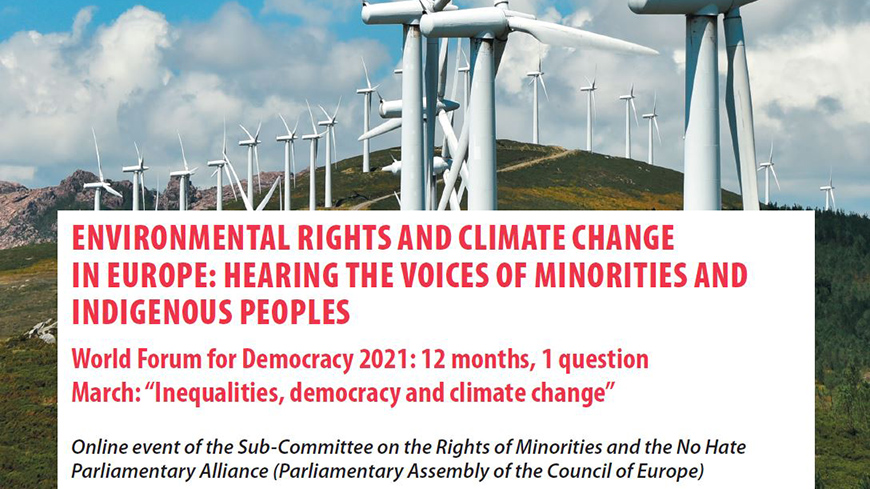Environmental rights and climate change in Europe: Hearing the voices of minorities and indigenous peoples
MONDAY 29 MARCH 2021, FROM 11 AM TO 12.30 PM (CEST)

This online event is co-organised by the Parliamentary Assembly’s Sub-Committee on the Rights of Minorities and No Hate Parliamentary Alliance, as a contribution to the March theme of the campaign, “Inequalities, democracy and climate change”.
Minorities are often disproportionately affected when it comes to climate change and environmental rights. Dams, mining and other industrial activities can threaten areas where minorities live, especially where authorities consider political opposition to such projects will be weaker there, and minorities may be pushed into living on contaminated, unsafe land.
Indigenous peoples have preserved biodiversity over millenia, yet climate change, extraction, deforestation,
tourism and monocultures (amongst others) are increasingly threatening their ways of life and the ecosystems of which they are the traditional custodians. “Green colonialism” is now posing new threats, as projects to promote green energy encroach on indigenous territories and risk causing new harms to indigenous peoples and their rights.
Yet the voices of minorities and indigenous people are rarely heard when it comes to protecting the environment and combating climate change in Europe – they are not effectively consulted on the environmental impact of new projects, nor is climate justice a reality for them.
How can European States remedy existing violations of the right to a clean, safe and healthy environment that
are disproportionately experienced by minorities and indigenous peoples, and ensure that efforts to prevent and mitigate climate change guarantee a sustainable future for all?
This conversation will raise awareness on the need both to ensure that minorities are part of climate change
solutions and to guarantee climate justice, and on how parliamentarians can contribute to these efforts. Taking
an action-centred approach, it will seek to allow promising practices to be identified and shared.
 Concept note
Concept note
